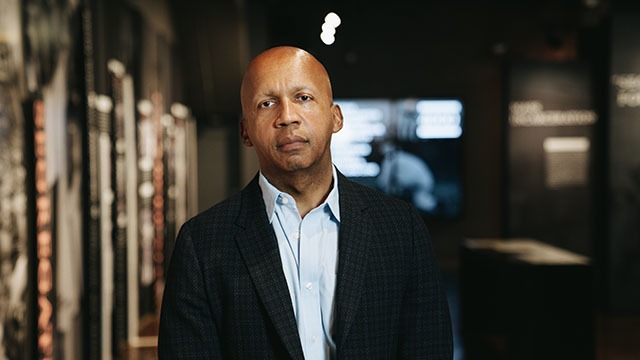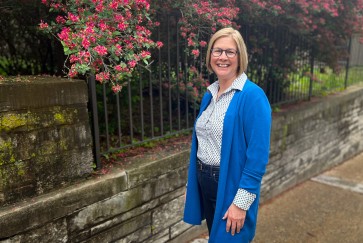“Just Mercy,” a work by renowned public interest lawyer Bryan Stevenson, and the basis for the critically acclaimed 2020 film by the same name, is Northwestern’s One Book selection for the 2020-21 school year.
Stevenson is expected to deliver a keynote address on the Evanston campus Oct. 29. All first-year students will receive access to the ebook.
An urgent call to action at the time of its writing in 2012, “Just Mercy: A Story of Justice and Redemption” is an intimate look at the human consequences of a broken justice system and a prescient warning about racism, poverty and inequality in America.
“Bryan Stevenson may, indeed, be America’s Mandela,” wrote Nicholas Kristof of The New York Times in a review. “For decades he has fought judges, prosecutors and police on behalf of those who are impoverished, black or both… Injustice is easy not to notice when it affects people different from ourselves; that helps explain the obliviousness of our own generation to inequity today. We need to wake up. And that is why we need a Mandela in this country.”
Bryan Stevenson may, indeed, be America’s Mandela.”
“Just Mercy” tells the story of the Equal Justice Initiative (EJI), a nonprofit law office founded by Stevenson to help the poor, the incarcerated and the condemned, and one of the organization’s first clients, Walter McMillan, a young black man, wrongly accused and convicted in the 1986 murder of an 18-year-old white woman in Alabama. Jamie Foxx and Michael B. Jordan star in the adaptation, which premiered in January.
“The issues that Bryan Stevenson addresses in his work are both timeless and very much of the moment. American justice has long been haunted by inequities caused by racism and poverty. We see the consequences now not only in radically disproportionate incarceration rates, but also in the tragically high number of cases of COVID-19 in our prisons and jails,” said Professor Jennifer Lackey, faculty chair of the One Book committee and director of the Northwestern Prison Education Program, which provides the only degree-granting program in Illinois with a full liberal arts curriculum — humanities, fine arts, social sciences and STEM courses — to incarcerated students.
“Stevenson’s voice calls us forward to a better, fairer world — one that is more just in being more merciful,” Lackey added.
Stevenson took on McMillan’s case post-conviction. He showed that the state’s witnesses had lied on the stand and the prosecution had illegally suppressed evidence supporting McMillan’s innocence. The conviction was overturned by the Alabama Court of Criminal Appeals in 1993, and McMillan was released after spending six years on death row for a crime he did not commit.
In spite of the work of advocates, advancements in DNA testing and our understanding of false confessions and eyewitness accounts, the circumstances that led to McMillan’s arrest and conviction more than three decades ago are not relegated to America’s past. By some measures, the problems are much worse today.
Since 1970, the number of incarcerated people in the U.S. has increased 700% to approximately 2.3 million, making the U.S. home to nearly a quarter of the world’s prison population, according to the American Civil Liberties Union. One out of every three black boys born today can expect to go to prison in his lifetime.

The coronavirus pandemic has become rampant in many jails, prisons and immigration detention centers, where people are confined in close quarters and often have difficulty taking preventative measures to ward off the virus.
“In many parts of this country, the opposite of poverty is not wealth. In too many places the opposite of poverty is justice,” Stevenson said in a 2012 TedTalk, which has been viewed by almost 6.5 million people. “We will ultimately not be judged by our technology and design, we will judge the character of our society by how they treat the poor. That is when we’ll understand truly profound things about who we are.”
The One Book One Northwestern Program is sponsored by the Office of the President and will include related films, lectures and other programming throughout the coming academic year. The campus-wide read is chosen by the University’s One Book selection committee.
“Bryan Stevenson’s 'Just Mercy provides a lens through which to look at the injustices of our current justice and penal system. Meanwhile, the covid-19 pandemic further highlights those disparities,” said Nancy Cunniff, director of the One Book program . “We look forward to a year of examining these issues and asking our community how we might be a catalyst for change.”


